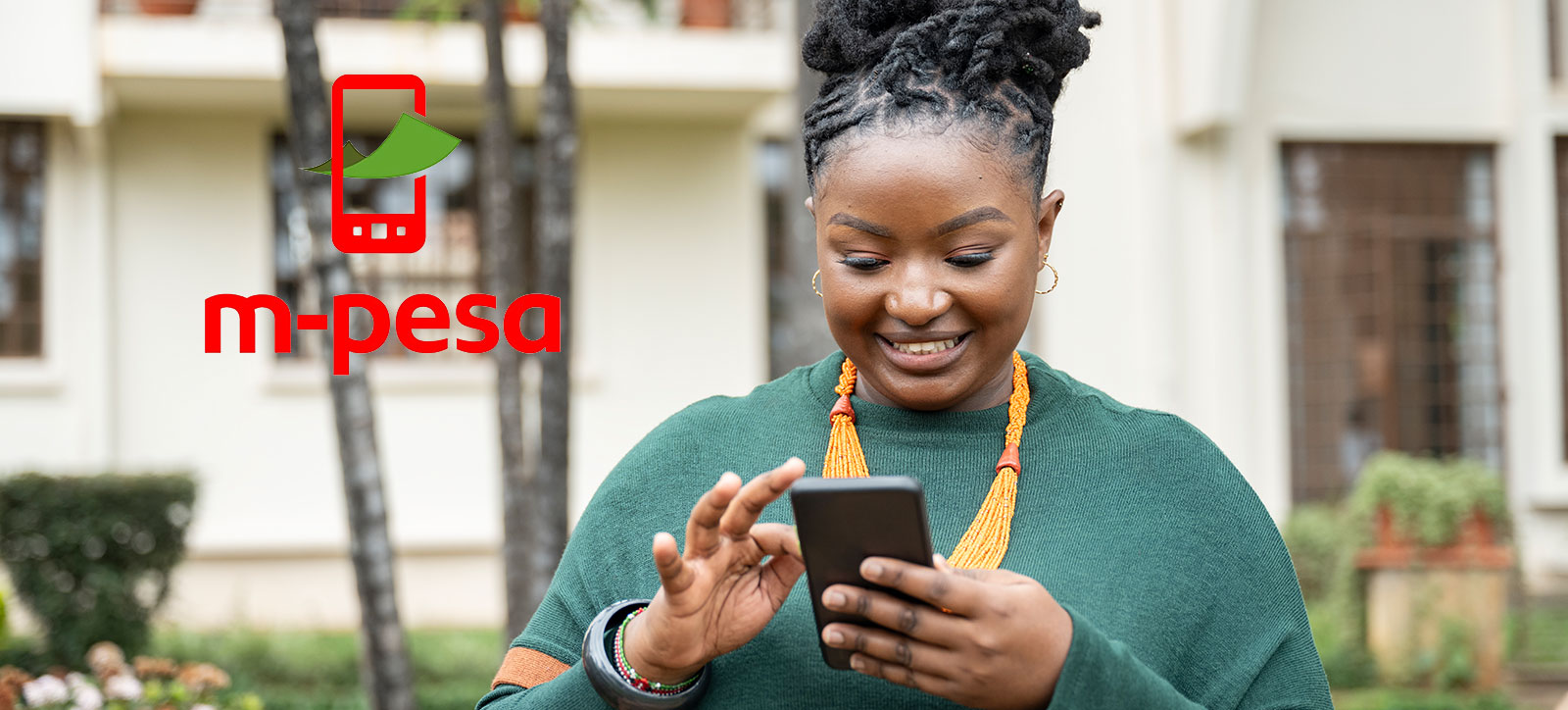
Dominant: Nearly 60 per cent of Kenya's GDP flows through M-PESA in 20 billion payments per year
A staggering 59 per cent of Kenya’s GDP flows through M-PESA, the country’s dominant mobile payment system. That amounted to 20 billion transactions during 2023.
A quick comparison with PayPal helps to illustrate the extent of M-PESA’s dominance. Paypal’s total payment volume was $1.53 trillion in 2023. No country specific data is available, but if we made an extreme assumption that 80 per cent of those transactions took place in the US, that would still mean that less than five per cent of the country’s GDP flows through the platform.
While M-PESA is a giant in Kenya, its parent company Safaricom is dwarfed by its potential competitors in the international market.
PayPal’s revenues are more than 10 times larger. Apple’s revenues are more than 150 times the size of those of Safaricom. So why has none of them outplayed this Kenyan company?
M-PESA tailored its payment platform for an emerging market
M-PESA was not an immediate success. Armed with a grant from the United Kingdom’s Department for International Development, Safaricom and Vodafone set out to create a fully-fledged mobile payment service with the intention to reach those with no bank account in 2005.
While this worked as a pilot, scaling it was not possible. The key insight was that Safaricom needed to simplify its model, which meant concentrating on money transfers only.
As the company expanded, first in Kenya and then into other African countries, it had to adjust again and again. This requires ears close to the ground. Western tech giants find this challenge difficult to overcome, as their way of thinking rarely aligns with the nitty-gritty issues that unhinge ideas in these markets. It’s also expansive in markets that are relatively small for these global firms.
This puts M-PESA at a crucial advantage. The management team understand these markets and for them the opportunity size is a great fit.
How M-PESA collaborated with potential competitors
M-PESA also found a perfect way to deal with potential competitors: it embraces them. Building a customer base is expensive and, in principle, this is more affordable for international players with large cash reserves.
The bigger problem is the type of smartphones used in emerging markets. While penetration is increasing rapidly, most phones have limited capacity.
“The majority of the smartphones sold here are affordable $50 or so devices that have limited features including storage,” explains Sitoyo Lopokoiyit, M-PESA Africa managing director.
“That means they can only keep a handful of apps on their phones, and most of the time this includes the M-PESA Super App.”
The chances for international payment giants such as Visa to get customers to download their app are slim, considering that Facebook, WhatsApp, and TikTok are a priority.
“With the Super App, we provide an opportunity for other businesses to have their apps embedded within ours, solving the distribution problem for businesses,” says Lopkoiyit.
Not only does that solve the distribution issue and the problem with the limited space on phones, it also solves the other big issue that businesses face.
Buying data is expensive for them. But using the Super App is free, as M-PESA makes its money by taking a share of each transaction performed.
“So far, we have over 100 such embedded mini-apps with over five million customers using the Super App every month,” adds Lopokoiyit.
It’s a win-win situation where potential competitors have little incentives to go against M-PESA.
Unconventional steps keep M-PESA a step ahead of the game
One of M-PESA’s more recent successes is Fuliza, an overdraft service introduced in 2019. Extending the money transfer service to loans always seemed exciting but also very risky. Put regulatory concerns on top and you can see why this could have put an end to the conversation.
“We noticed we had millions of transactions that would fail due to a customer having insufficient funds,” Lopokoiyit explains.
“But, and this is important, customers would repeat more than 58 per cent of these transactions within two days once they had topped up their account. This gave us the idea of creating an overdraft service.
“In our last financial year, more than $6.4 billion was disbursed through our Fuliza customer overdraft service with the average ticket size being just about $2.”
This is simpler than a loan as it does not require complex credit checks. M-PESA provides customers with pre-approved limits they can immediately draw against. But it is unconventional.
Can M-PESA continue to dominate in Kenya and beyond?
M-PESA is particularly good in coming up with unconventional yet practical ideas. It also works closely with different regulatory bodies in the countries where it operates. Sharing their ideas at an early stage helps to overcome any concerns that unconventional ideas naturally lead to.
Looking forward, M-PESA will probably continue to build new products, often in partnership with big technology firms. It would also be a surprise if it does not continue to expand in Africa.
No doubt this will require M-PESA to make more unconventional adjustments, but that is nothing new for Lopokoiyit and his team. It means they can forge ahead into new territory without stepping out of their comfort zone.
This article was originally published by Forbes.
Further reading:
New tech and old mech: A recipe for start-up success
What is the secret to Walmart's success?
Six tips to find hidden benefits in tech M&A
How NASA fits into the new space race
Christian Stadler is Professor of Strategic Management and teaches Strategic Advantage and Strategy and Practice for the Executive MBA and Global Online MBA.
Learn more about strategy on the four-day Executive Education course Strategic Choices at WBS London at The Shard.
For more articles on Strategy and Organisational Change sign up to Core Insights.




 X
X Facebook
Facebook LinkedIn
LinkedIn YouTube
YouTube Instagram
Instagram Tiktok
Tiktok